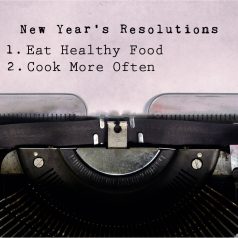
Eating Healthy in 2018
What comes to mind when you think of healthy foods? If you asked a dozen people this question, you’d likely get a dozen different answers. In fact, the FDA is in the process of redefining “healthy foods” and recently needed to extend the public comment period on the use of the term “healthy” with regard to labeling of food products in response to the overwhelming volume of feedback. It seems that we have a lot to say on the subject and those of us looking for guidance on how to eat a healthier diet find our heads spinning with often contradictory information about what it means for foods to be healthy.
Because one of our Co-op Ends is to provide the community with healthy foods, it’s a topic that we spend a lot of time thinking about, so when we learned that Michael Pollan would be giving a lecture at Dartmouth College we jumped at the chance to send a few staff to hear what he had to say. When Pollan gives lectures, it’s standing room only. Food and diet book writers quote him constantly, Time Magazine named him one of the most influential figures, and he’s the subject of many a food-related conversation. His broad appeal is probably an indication of how confused we are about food, and how much we love it when people make it very clear to us what we should and shouldn’t eat. He has a way of making it all sound so simple: eat real food, not too much, mostly plants.
Following Pollan’s simple food rules “could render fad diets irrelevant, positively impact the environment, champion local food producers, and bring the processed food industry to its knees” says Eve Adamson of NCG. So why aren’t we busy toppling the $60 billion diet & weight loss industry and tackling Big Food? Certainly not because we’re busy cooking. The average American spends just 27 minutes a day cooking or preparing food. That’s less than half of the time we spent cooking in 1965. The average adult spends more time watching, scrolling and reading about food on TV and social media than they do cooking their daily meals! In 2015 and 2016, we spent more money at restaurants and bars than at grocery stores. The rise of convenience foods and ready-to-make meal services like Blue Apron points to the notion that we simply feel too busy to shop for and cook healthy meals at home. But, as Pollan points out, this isn’t so much about a lack of time and more about the way we use our time these days. “The phenomenon of Americans working more than ever is a myth”, says Pollan but “the sense that we have less time is real”.
So, what is lost when we as a society decide we’re too busy to cook? We lose skills, we lose confidence, and we lose control of our health. We’re outsourcing food preparation to big businesses and their priorities when feeding us are very different from the priorities we’d set when preparing a meal for our family at home. They’re interested in producing food as cheaply as possible yielding the highest profit possible. They would like us to believe that it’s very complicated so that we’ll leave it up to them. They’re also interested in making you a repeat customer, spending millions of dollars in a conscious effort — taking place in labs and marketing meetings and grocery-store aisles — to get people hooked on foods that are convenient and cheap but, unfortunately, not so healthy.
So, what is a health-conscious shopper to do? Skip the powders, pills, food-like substances, and wacky diets. Resolve to eat real food, not too much, and mostly plants. Reclaim your kitchen and choose to think of cooking as an act of revolution! Also, remember that it’s not an all-or-nothing proposition; even choosing to cook three meals a week at home can make a huge difference. Discard the narrative that you don’t have time, it isn’t fun, and you don’t know what you’re doing. Just keep it simple and enjoy every bite.
